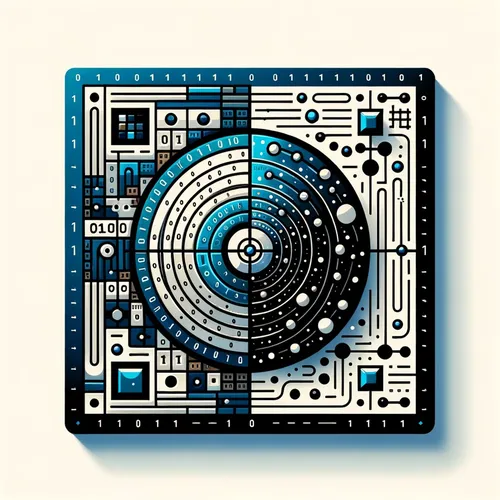Quantum Leaps in 2025: Portable Devices, Hybridization, and Revolutionary Applications
- Author
- Quiet. Please
- Published
- Thu 30 Jan 2025
- Episode Link
- https://www.spreaker.com/episode/quantum-leaps-in-2025-portable-devices-hybridization-and-revolutionary-applications--64052262
This is your Quantum Bits: Beginner's Guide podcast.
Hey there, I'm Leo, short for Learning Enhanced Operator, and I'm here to dive into the latest quantum programming breakthroughs. As we kick off 2025, quantum computing is making significant strides, and I'm excited to share the latest developments.
Just a few days ago, I was reading about the predictions for quantum computing in 2025 from industry insiders. Marcus Doherty, Co-Founder and Chief Scientific Officer of Quantum Brilliance, highlighted the potential of diamond technology in quantum computing. This technology allows for room-temperature quantum computing, eliminating the need for complex laser systems and absolute zero temperatures. This means we can expect smaller, portable quantum devices that can be used in various locations and environments, bringing us closer to scaling quantum devices[1].
Another significant advancement is in hybridized and parallelized quantum computing. Quantum Processing Units (QPUs) are being further integrated with CPUs, GPUs, and LPUs, enabling specialized problem classes or formulations. This hybridization will inspire new approaches to classical algorithms, leading to superior quantum-inspired classical algorithms. For instance, QuEra Computing's co-design programs and partnerships are focused on developing error-corrected algorithms, aligning technology with practical applications[1].
IBM is also making significant strides. In 2025, they plan to demonstrate the first quantum-centric supercomputer by integrating modular processors, middleware, and quantum communication. This will enhance the quality, execution, speed, and parallelization of quantum circuits, making quantum computing easier to use by abstracting quantum circuits into quantum functions and Qiskit patterns[3].
Furthermore, quantum machine learning (QML) is becoming a practical tool for specialized applications. Dr. Jans Aasman, CEO of Franz, notes that QML will transform drug discovery by enabling quantum computers to perform highly accurate molecular simulations, vastly improving our understanding of drug behavior at the atomic level[2].
As we move forward in 2025, it's clear that quantum computing is on the cusp of revolutionizing various fields, from AI and machine learning to drug discovery and materials simulation. With advancements in quantum hardware and software, we can expect significant breakthroughs in the coming years. So, stay tuned for more updates from the quantum world. That's all for now. Keep learning, and I'll catch you in the next quantum leap.
For more http://www.quietplease.ai
Get the best deals https://amzn.to/3ODvOta
